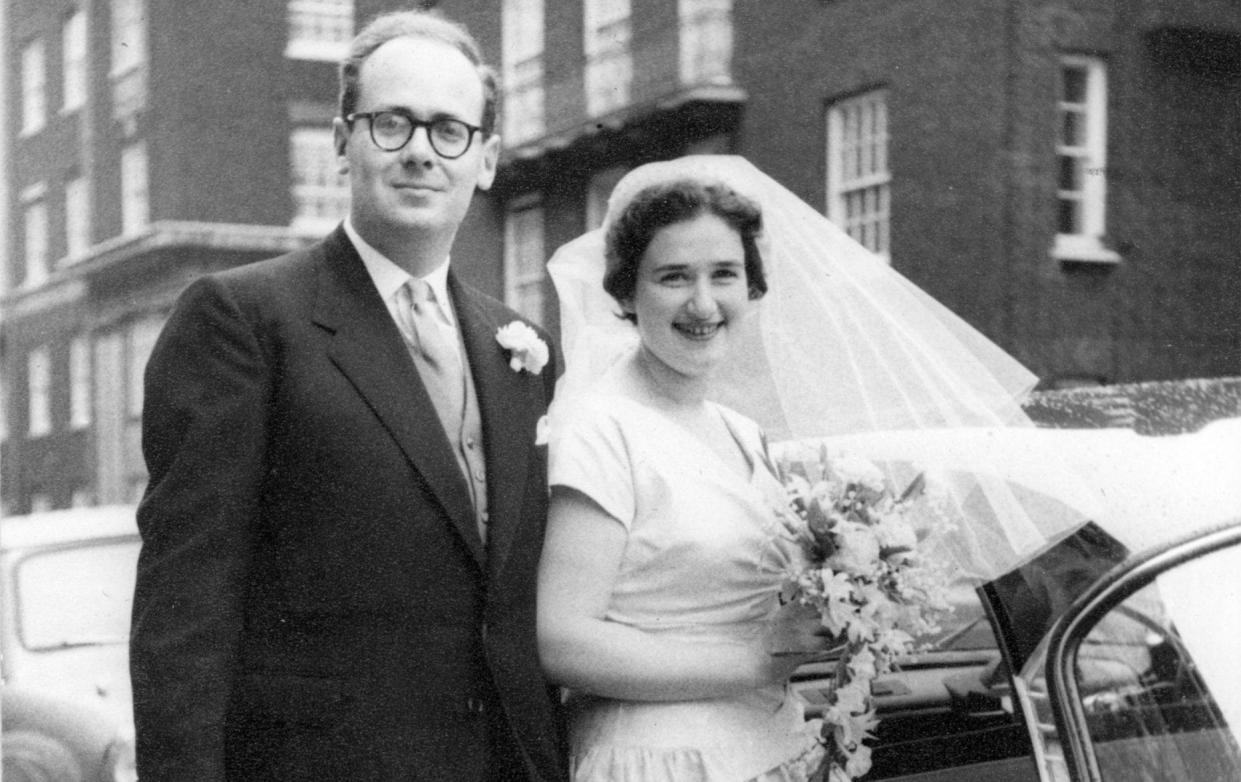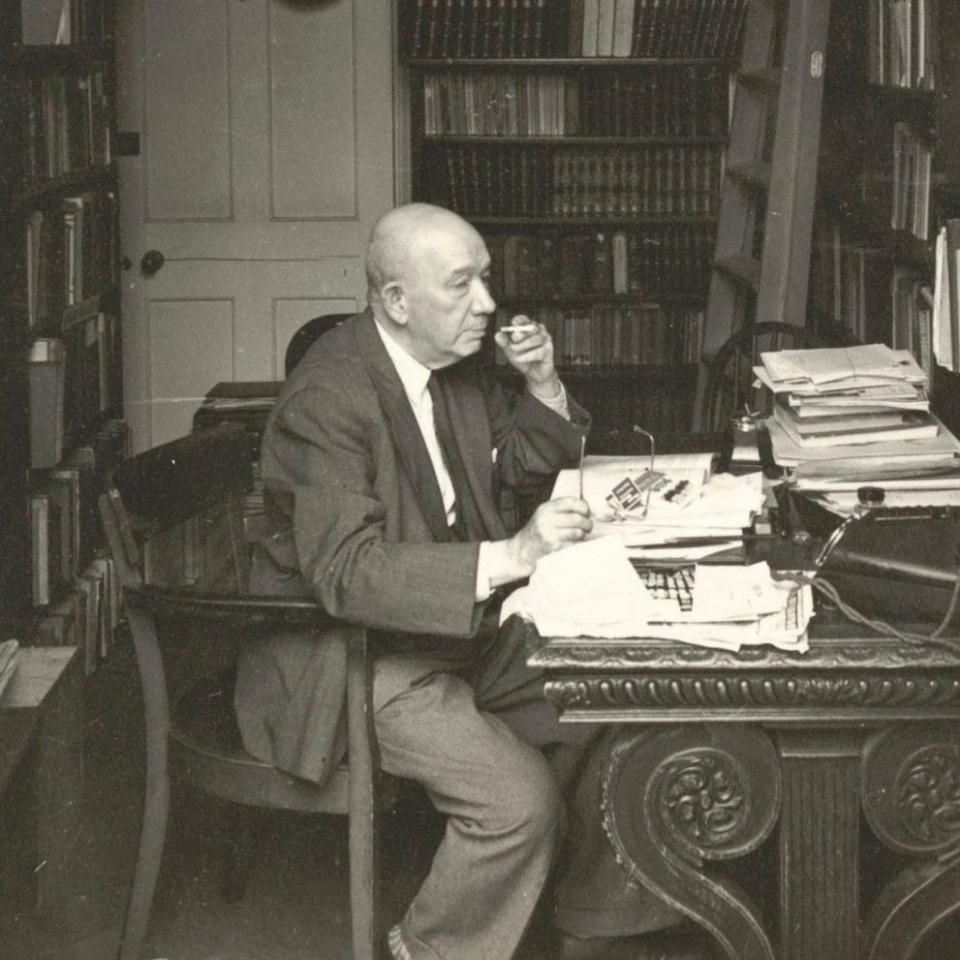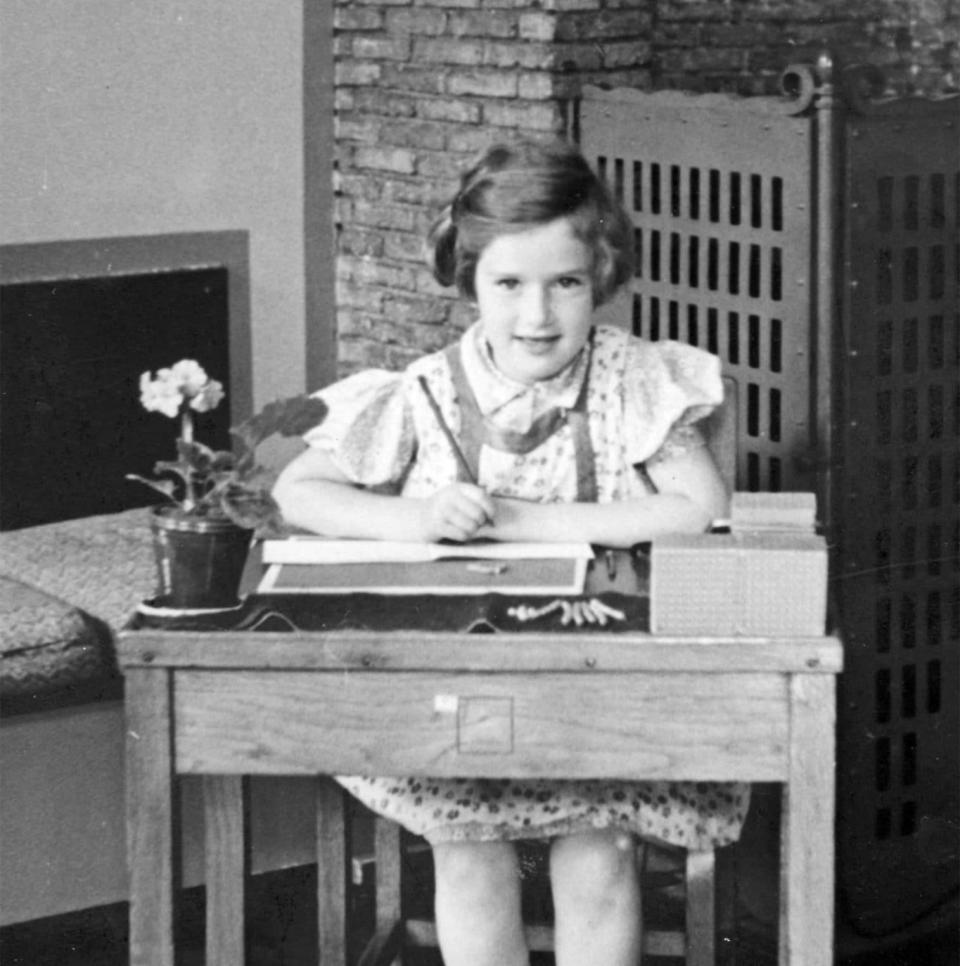Hitler, Stalin, Mum and Dad: an odyssey into one family’s dark past

On September 1 1939, the day the Wehrmacht stepped across the Polish border, Alfred Wiener opened the Jewish Central Information Office’s premises in London. A scholar of the Middle East by training, Wiener had served in the German army during the First World War; in the post-war years, he chronicled the growing strength of the Nazi movement in his library collection of propaganda and paraphernalia.
Following a baleful meeting with Hermann Göring in 1933, in which the new Nazi minister threatened to destroy the library and persecute its founders, Wiener fled to the Netherlands then, six years later, to Britain – taking his books and papers with him.
In London, Wiener’s library became the JCIO’s main resource, and constituted an extraordinary depository of research into the Nazis and their escalating crimes. It served as a resource for British intelligence during the war, and would be employed at the Nuremberg prosecutions of 1945–6. Wiener was a bastion of scholarly resistance – but, on that day in 1939, he was alone in London, with his family trapped in Amsterdam and the Nazis edging closer and closer.
Daniel Finkelstein is Wiener’s grandson, through his daughter, Mirjam. She would meet Ludwik Finkelstein in April 1956, marry him a year later, and settle in London, where they would have Daniel, the second of their three children, in 1962. In Hitler, Stalin, Mum and Dad, Finkelstein explores his parents and grandparents’ separate wartime experiences: Ludwik was interned by the Soviets as an advocate of Polish freedoms in 1940; Mirjam, a childhood friend of Anne Frank, was sent from Amsterdam to Bergen-Belsen in 1943.
A newspaper columnist and Conservative peer, one might consider Finkelstein more attuned to producing an acerbic thousand-word article, but he is a versatile writer who has delivered an exciting story of courage and persistence, powered by a sense of filial duty and engagingly sustained over its hundreds of pages. “I am only just beginning to understand this as an adult would understand it,” he reflects. “Because when you are young, you don’t ask all that many questions about your parents. They just are.”

Finkelstein’s book follows two generations of his family, as they voyage through the detritus of ideological collisions and war. The opening pages display the story in cartographic form, with a sprawling criss-cross of arrows through the world as the family, prisoners and refugees, are scattered to New York, Amsterdam, Bergen-Belsen and Ukhta, a gulag in the cruel Siberian wastelands, in their peripatetic journeys.
“The crimes the Nazis committed lie not only in the ghostliness of the concentration camps,” Wiener said at the end of the war. “There are the invisible crimes of which the effects are still felt: the families who have been torn apart forever.” Out of their shattered Jewish communities, his family built a new one of intellectualism, diligence and active citizenship. “My parents did not forget, and ‘forgive’ isn’t the right word either,” Finkelstein writes. “What they did, instead, was to transcend what happened to them… my parents were determined that we wouldn’t just exist, we would live.”
To live: that would be the ultimate act of resistance and reckoning for the millions who built lives out of the desolation, and whose stories are etched into the fabric of our collective heritage.

The former Jewish Central Information Office is now nestled in a Georgian building in Bloomsbury. The Wiener Library, as it became, is the UK’s foremost centre for Holocaust research. It uses the resources of the International Tracing Service to examine the lives and experiences of victims of the Holocaust on behalf of survivors and relatives. The average person can use Alfred Wiener’s legacy, much like Finkelstein has done, to uncover their ancestry from the intimidating discord of the past.
History, after all, is cruel; only a few stories endure. Seventy-eight years after the end of the war, we stand on the cusp of a great collective loss. Writers such as Philippe Sands and Jonathan Freedland have ventured back into the story of the Holocaust to craft books full of emotive colour, and with Hitler, Stalin, Mum and Dad, Finkelstein has produced another one: an elegy for the past, and a hopeful call for the future.
Hitler, Stalin, Mum and Dad is published by Harper Collins at £25. To order your copy, call 0844 871 1514 or visit Telegraph Books


